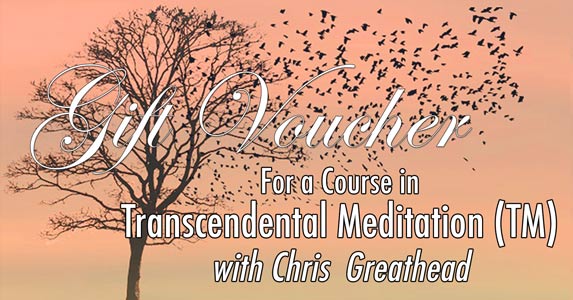“TM – Its Effortless : Something Delicious You Sink Into.”
Sue Limb – The Guardian
I resisted TM for years. My friend Theresa Sullivan learned it in 1976 when we were teaching at a comprehensive school and in desperate need of tranquility. She hinted gently but not evangelically that it might help my head-aches. I’ve always fled evangelism since college, when a girl who dropped in for a cup of tea suddenly started praying for my immortal soul, right there on my own hearthrug among the buttered crumpets.
In my ignorance I thought transcendental meditation was a sort of austere religion. I feared I might have to give up my doughnuts and wrestle with the 4th year rebels on a meek diet of yoghurt and honey. My instincts have always been rather secular and sceptical, despite the precognitive dreams, the telepathy and the poltergeist. (But that’s another story)
I assumed that Theresa took to TM, because she’d been brought up a Catholic and was therefore – In The Habit – as it were. But I didn’t need a prop, I assured myself, as I collapsed exhausted, scrabbling for the aspirins after another day on the front line. Eventually I left the teaching to Nature’s commando, and took to a life of limp scribbling. It was the kind of relief a chicken might feel if it gave up being savaged by a mad dog. Life was pleasurable again, but from time to time, exhaustion and anxiety still reared their hydra heads.
Finally last autumn, I took the plunge. I was in a low state. Several years incessant limp scibbling and not enough time off, had taken its toll. I began haunted by a fear of collapse; of making a fool of myself in public. (Although in some senses that’s the way comedy writers earn their living.) Agoraphobia loomed; I rang my local TM teacher, booked myself an initiation, and hoped it would not be too public.
It took place in a private house in a quiet back street in Bath. TM is taught in four sessions : one private and simple ritual in which your teacher confides your mantra to you, and then three meetings with a handful of fellow learners on subsequent days for explanation, discussion and practice.
You’d think group meditation in a quiet sitting room in a back street in Bath wouldn’t be too much a strain for an agoraphobic. It was hardly the hurly-burly of the market place. A deep silence fell. It wouldn’t make great radio. But for me, the silence was the problem. It imposed a certain formality on the situation, which I was saure I would violate.
Back home, I found it a lot easier to give myself up to the simplicity of the thing. TM is just a way of resting the mind.
You don’t have to sit cross-legged, burn joss sticks or chant. You don’t have to give up doughnuts. For 20 minutes twice a day, I sit down in an armchair, close my eyes and let my brain settle down to quieter and quieter patterns.
Its hard to describe and in fact for the over-educated and the over eager, the hardest part to grasp is the simplicity and innocence of meditation. That’s why you need skilful teaching and careful follow up checks to make sure you’re not trying too hard. It’s effortless; something delicious you sink into. Perhaps Andrew Marvell’s lines come nearest to it :
“Meanwhile the mind, from pleasure less,
Withdraws into its happiness.”
But the great thing about TM is that it doesn’t matter if your mind is busy with thoughts. Whatever it does in its 20 minutes is what it needs to do; thoughts are a form of stress release and therefore helpful. Still, the meditations I most enjoy are the ones where the mind settles down to a quietness so complete it is pure conciuosness, a state which the maharishi describes as “charming”. Well, I think that’s putting it mildly – but then, he would. If I go to bed on a difficult day having missed a meditation, I don’t feel I’ve neglected a duty, but denied myself an exquisite pleasure.
It hasn’t cured my headaches. But I suddenly noticed, after about three months, that I’d stopped feling tired. I’d always specialised in tiredness. At 4pm my legs used to turn to lead and my brain to fishpaste, and sometimes only a two hour sleep could revive me. Now I droop less often, but when I do, all it takes is 20 minutes TM, I sink down like a tired toad and rise like a – well, a revived toad.
Sorry to sound evangelical. It’s so un-British. We’re much more at home with irony and defeat. But there comes a time when you simply have to clench your teeth and do your duty for Martyn Lewis.





